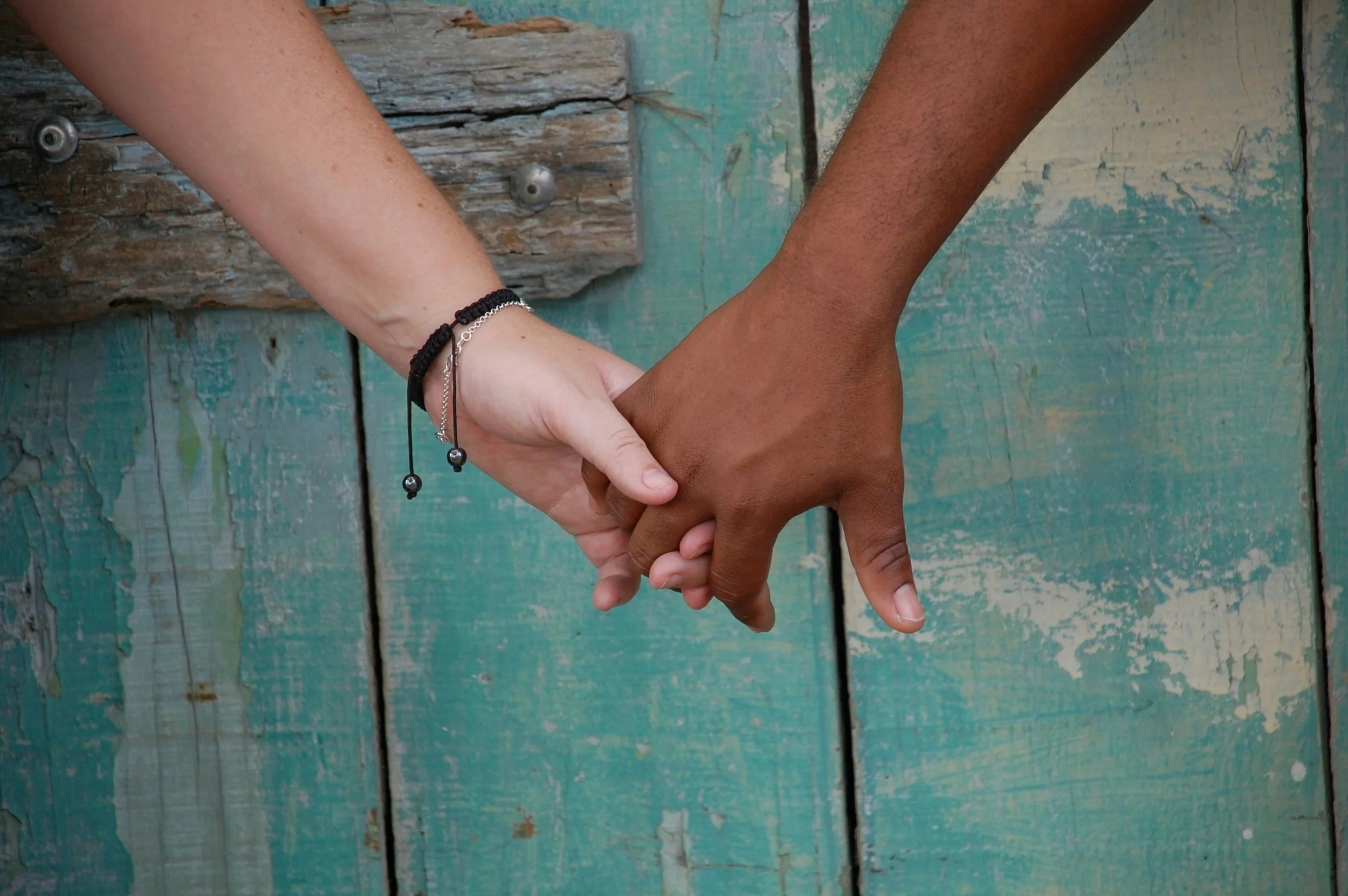Interracial Relationships: The Unspoken “Mental Load”
My partner and I were having dinner with another couple. Seemingly out of nowhere, one asked: “For both of you, what has it been like being in an interracial relationship?”
We were always aware of the intercultural differences—he being of Puerto Rican and Nicaraguan heritage and having spent his whole life on American soil, me being Malaysian-Chinese who’s lived through a mixture of Eastern and Western influences in different countries and cities. We spent most of our dating life long-distance, so we rarely were ‘seen’ together. But as we reflected on that moment together, we realized another layer to our relationship we needed to unpack:
Others first see us as an interracial couple.
Interracial couples are not a new phenomenon - they’ve existed as long as love and migration have been around. However, the legal and formal recognition of mixed-race couplehood is still relatively new. In America, interracial marriages were only permissible by law in 1967. Plus, historical categorizations such as the “one-drop rule” to “mulatto” to the more recent cultural sayings like “Oxford Study” and “Race Traitor” are indicators that prejudice still exists.
Larger systemic forces aside, internal micro/daily forces create additional pressure on a multicultural couple compared to a monocultural couple.
There’s a layer of family-of-origin dynamics like in-laws and unchecked family beliefs; for example, in Asian culture, white/light-skin is ‘good’ and marrying someone darker than you are a downgrade.’
There’s another layer of having to consider that the other person does not look like you, from longer-than-necessary stares as you grocery shop together to deciding whether it’s cultural appropriation if my partner wears Malaysian batik to an event without me present to my partner scouting out a restaurant ahead of me when we’re traveling in different parts of America for the sake of my safety.
And there’s another possible layer for those who are choosing to raise children together: will my child ever fully belong to any culture? Would others treat my child differently because they are different? How will the world treat my child who doesn’t fit the boxes?
Interracial couples experience more mental loads than monoracial or monocultural couples.
Here are 2 steps that can help to manage the mental load of being in an interracial/intercultural relationship:
Acknowledge the Systems that Shape You
As a therapist, I constantly acknowledge that we live in contexts beyond our control. I think it’s essential to recognize history, ancestral or recent, and its impact on your personal or coupled identity. While acknowledging the systemic and historic barriers may not solve the existing effects in your life, knowing that you are not at fault can be a significant relief.
Less Compromise, More Co-Creation
Compromise suggests that someone is giving in or losing. Perhaps some moments require compromise, like agreeing to take turns to do that one chore you both despise. More importantly, there is no winning or losing in a relationship; you only win together or lose your relationship. Creativity goes beyond winning or losing - it combines imagination and originality. When you choose to co-create together, you can imagine a future you are both aligned and excited about, a life together that fits you best.
You deserve a couple’s therapist who fully sees and understands you both as individuals in a cross-cultural relationship.
Lastly, seek a therapist who practices Cultural Humility. It is rare for an interracial couple to find a therapist who will fully fit all the cultural boxes between you and your partner.
Cultural humility goes beyond being culturally informed because facts are not the same as truth; for example, what can be researched as facts on Asian women can vastly differ from your lived experience as an Asian woman to the next Asian woman. Being culturally humble means being informed of existing norms while maintaining curiosity and nonjudgment toward your specific experiences.
Start working with an Interracial Couples Therapist in Highland Park, Los Angeles, CA
In interracial and intercultural relationships, unseen mental loads can weigh heavily—layers of history, identity, and daily micro-forces that many monocultural couples never have to consider. It’s crucial to acknowledge these layers, not just to recognize their impact but to co-create a shared path forward. Therapy can be a safe space to explore these complexities together, to be fully seen and understood as a couple navigating cultural differences. Seek a couple’s therapist who values cultural humility, someone who can hold these truths with you, beyond what facts alone can capture.
If you are ready to start Interracial Couples Counseling, our multicultural and culturally humble couples therapists are happy to offer virtual and in-person therapy at our Highland Park, CA-based practice. Simply:
Navigate the mental load of your interracial relationship with more spaciousness.
Other Services Offered at Therapy on Fig
At Therapy on Fig, we offer therapy services that fit the unique needs of couples and individuals. In addition to couples therapy for interracial couples, we offer IFS Therapy, Grief and loss therapy in Highland Park, CA, Therapy for Empaths, Trauma Therapy, and Teen Therapy. We also address related issues such as anxiety, stress management, and relationship issues. Whether you're seeking support for a specific issue or looking to strengthen your relationship overall, our therapists are here to help. Reach out today to learn more about our services and to experience how couples therapy can work for you!
Grace Chan is an Associate Marriage and Family Therapist (#142670), supervised by Phillip Chang, LCSW #92156. She is trained in Brainspotting and Prepare/Enrich Premarital Counseling. She integrates Internal Family Systems (IFS) with creative arts therapies to support individuals and couples in deepening their connection to themselves and each other. Reach out to learn more about our experienced therapists.




